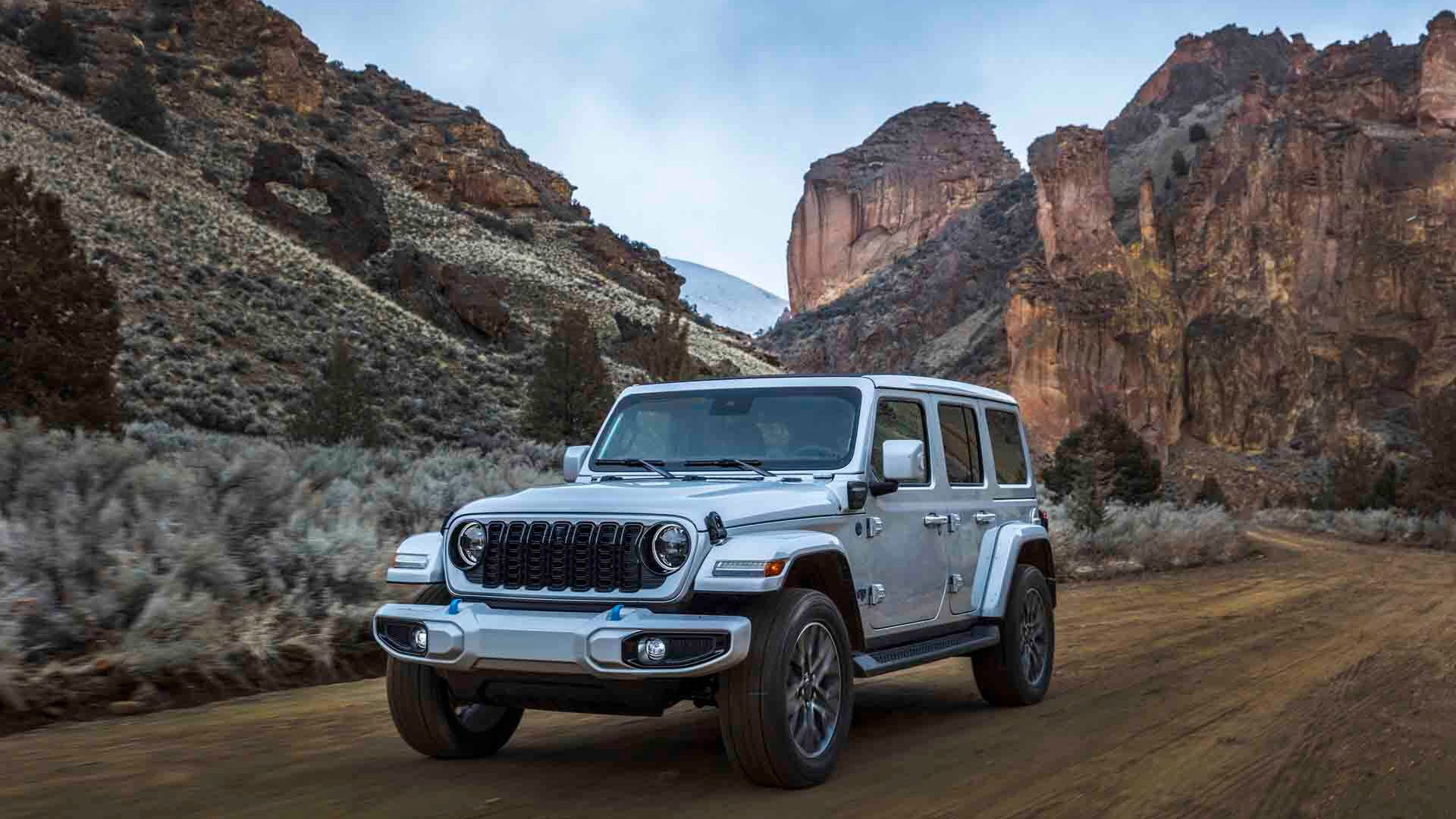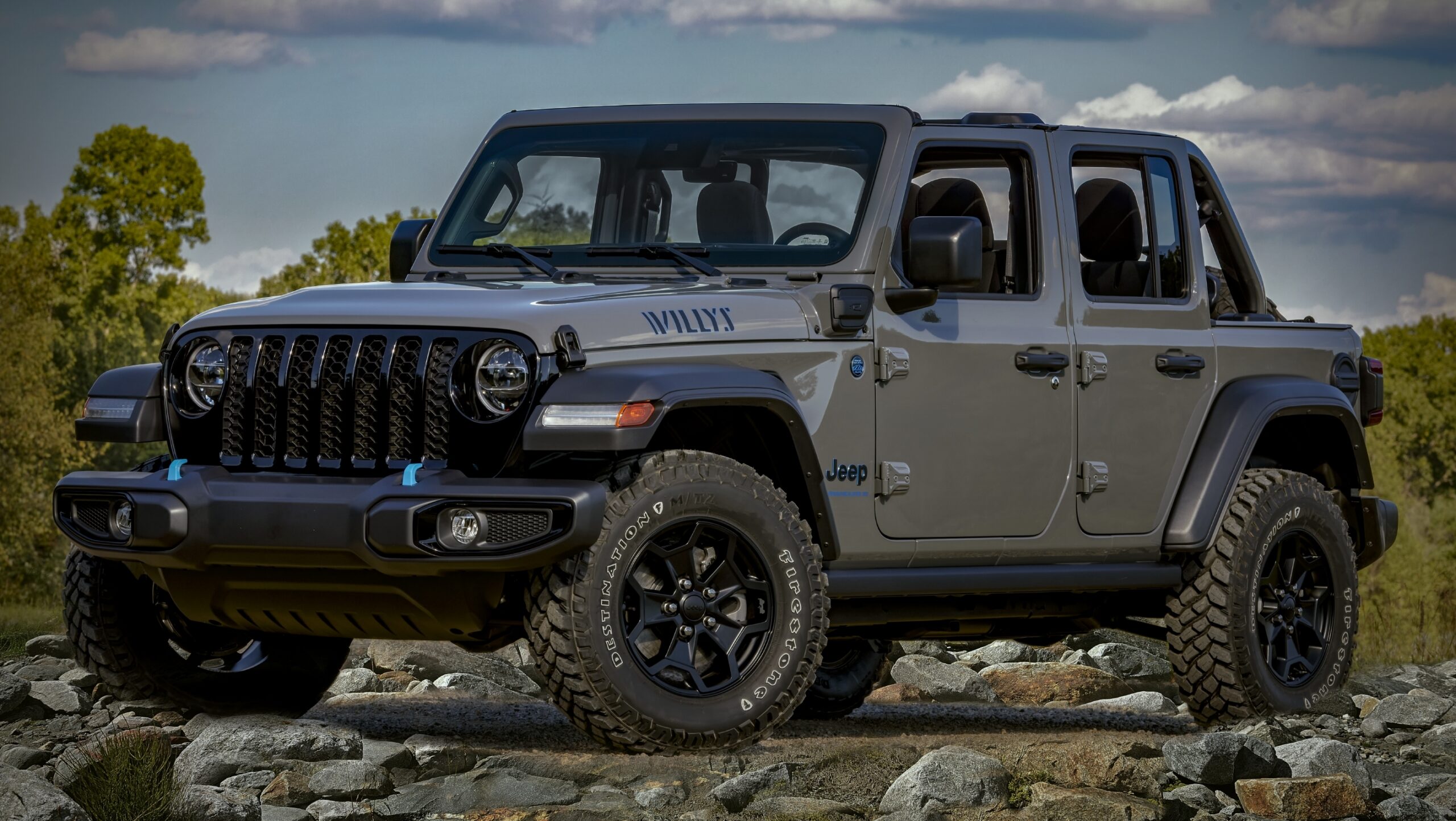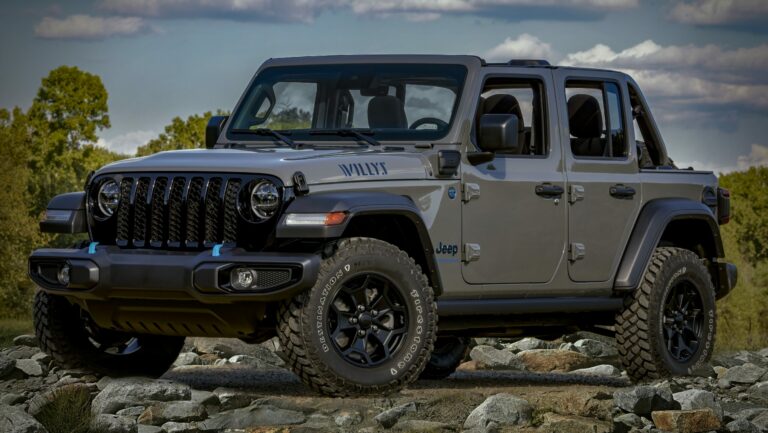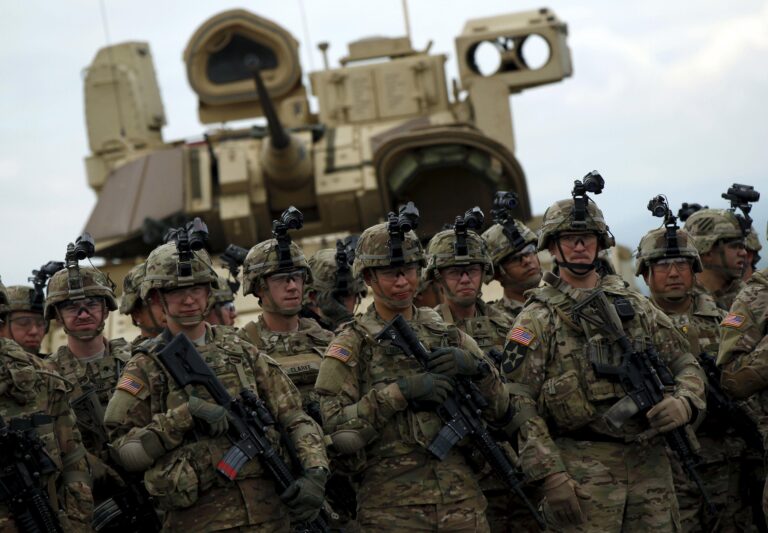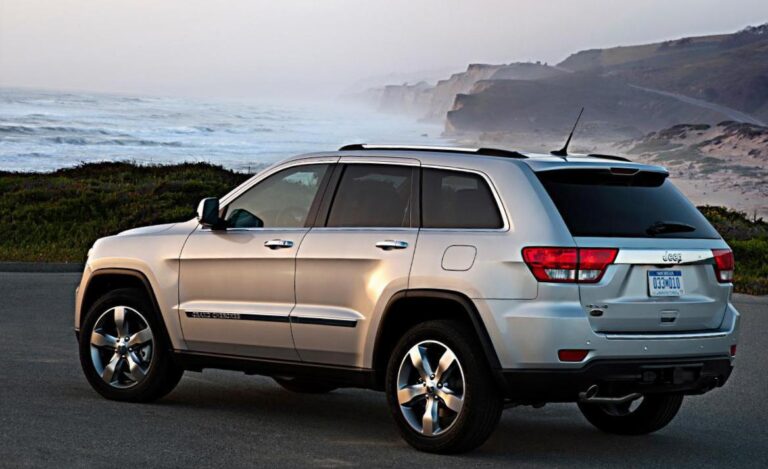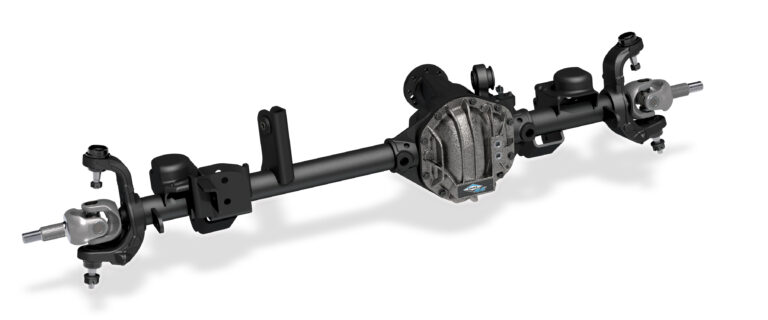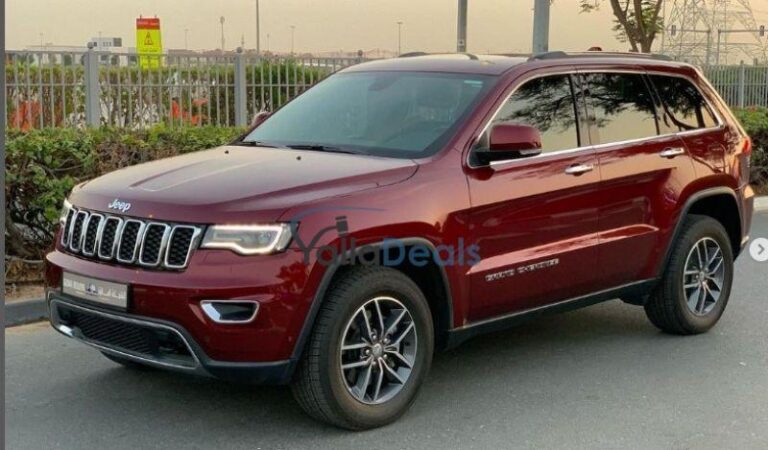The Apex Predator: Unveiling the Jeep SRT 1000 HP Price
The Apex Predator: Unveiling the Jeep SRT 1000 HP Price jeeps.truckstrend.com
In the realm of high-performance vehicles, few concepts ignite the imagination quite like a 1000-horsepower SUV. It defies logic, merges practicality with ludicrous speed, and carves out a niche all its own. The "Jeep SRT 1000 HP" is not a model you’ll find on a dealership lot with a factory sticker price; it represents the pinnacle of aftermarket engineering and a commitment to extreme power. It’s a heavily modified version of an already potent platform, typically the Jeep Grand Cherokee SRT or, more commonly, the Hellcat-powered Grand Cherokee Trackhawk.
This article delves deep into the world of the 1000 HP Jeep SRT, dissecting what makes it such a formidable machine and, crucially, shedding light on the complex and variable factors that determine its price. For those dreaming of commanding such immense power in an SUV, understanding the financial landscape is paramount. This isn’t just a purchase; it’s an investment in a bespoke, high-octane experience.
The Apex Predator: Unveiling the Jeep SRT 1000 HP Price
The Beast Unveiled: What is a 1000 HP Jeep SRT?
At its core, a 1000 HP Jeep SRT begins its life as a robust and powerful platform. The most common starting points are:
- Jeep Grand Cherokee SRT (WK2 Generation): Equipped with the naturally aspirated 6.4-liter (392 cubic inch) HEMI V8, producing around 475 horsepower from the factory. To reach 1000 HP, this engine requires extensive forced induction (supercharging or twin-turbocharging) and a complete overhaul of its internal components.
- Jeep Grand Cherokee Trackhawk (WK2 Generation): The more logical and popular choice, as it already comes with the supercharged 6.2-liter Hellcat HEMI V8, boasting 707 horsepower (or 710 HP in later models). While already a monster, pushing it to 1000 HP still necessitates significant upgrades to handle the additional boost and stress.
Achieving the 1000 horsepower mark (often measured at the crankshaft, or "crank HP") is no simple feat. It involves a sophisticated suite of modifications, typically including:
![]()
- Forced Induction Upgrades: For the Trackhawk, this means a larger, more efficient supercharger (e.g., a 2.65L, 3.0L, or even larger Whipple or Magnuson unit) or, less commonly, a twin-turbo setup. For the SRT 392, a supercharger or twin-turbo system is a fundamental addition.
- Engine Forging: The factory internals (pistons, connecting rods, crankshaft) are generally not designed for sustained 1000 HP output. High-strength forged components are crucial to prevent catastrophic failure under extreme pressure.
- Fuel System Enhancements: Massive injectors, upgraded fuel pumps, and often a boost-a-pump or dual pump system are required to deliver the immense amount of fuel needed for such power.
- Transmission Reinforcement: The ZF 8HP automatic transmission, while robust, often requires upgrades (e.g., upgraded clutches, valve body modifications, or even a full rebuild) to reliably handle the colossal torque.
- Cooling System Overhaul: More power generates more heat. Upgraded intercoolers, heat exchangers, and possibly additional cooling for the transmission and differential are essential for sustained performance and longevity.
- Exhaust System: High-flow headers, larger diameter piping, and performance mufflers reduce back pressure, allowing the engine to breathe more freely and contribute to power gains.
- Custom ECU Tuning: This is the brain of the operation. Expert tuning is required to precisely manage fuel delivery, ignition timing, boost pressure, and transmission shift points to maximize power safely and reliably.
- Drivetrain Upgrades: Stronger driveshafts and upgraded differential components may be necessary to transmit power to all four wheels without breaking.

These modifications transform an already fast SUV into a true hyper-SUV, capable of supercar-humbling acceleration while retaining its family-hauling practicality.
Decoding the Price Tag: Factors Influencing 1000 HP Jeep SRT Cost
The price of a 1000 HP Jeep SRT is highly variable because it’s a custom-built machine. It’s not a fixed MSRP but rather the sum of several significant components and services.
-
Base Vehicle Cost:
- Grand Cherokee SRT (WK2): A used SRT 392 can range from $30,000 to $60,000+, depending on year, mileage, and condition.
- Grand Cherokee Trackhawk (WK2): A used Trackhawk (which is the preferred base) typically starts from $60,000 and can go up to $90,000+ for newer, lower mileage examples. New Trackhawks (before discontinuation) were often well over $90,000-$100,000. The initial investment in the base vehicle is a major factor.
-
Scope and Quality of Modifications:
- Engine Build: Forged internals, cylinder head work, camshafts – this is the most expensive part of the modification process. Prices can range from $15,000 to $35,000+ depending on the extent and components chosen.
- Forced Induction System: A high-quality supercharger kit or twin-turbo kit, including all necessary plumbing and intercooling, can cost anywhere from $10,000 to $25,000+.
- Fuel System: Upgraded injectors, pumps, lines – typically $2,000 to $5,000.
- Transmission Upgrades: A reinforced transmission can cost $5,000 to $15,000+ for a complete rebuild with high-performance components.
- Cooling System: Intercoolers, radiators, heat exchangers – $2,000 to $6,000.
- Exhaust System: Headers, cat-back, etc. – $2,000 to $8,000.
- Custom Tuning: The expertise of a specialized tuner is invaluable, often costing $1,500 to $5,000+.
- Drivetrain Reinforcements: Driveshafts, axles, differential upgrades – $3,000 to $10,000+.
- Supporting Mods: Upgraded brakes, suspension components (to handle the power and improve handling) can add another $5,000 to $20,000+. While not strictly necessary for "1000 HP," they are crucial for safety and usability.
-
Builder/Tuner Reputation and Labor Costs:
- Renowned performance shops (e.g., Hennessey Performance, Livernois Motorsports, APR Performance, and other specialized Hellcat/SRT tuners) charge a premium for their expertise, proven results, and often a limited warranty on their work. Their labor rates are higher, but their R&D and quality control are typically superior.
- Labor for a comprehensive 1000 HP build can easily run from $10,000 to $30,000+, depending on the complexity and the shop’s hourly rate.
-
Ancillary Costs:
- Shipping: Transporting the vehicle to and from the tuner.
- Dyno Testing: To verify power output and fine-tune.
- Taxes and Registration: Standard vehicle costs.
- Insurance: High-performance modified vehicles can be more expensive to insure.
The Price Spectrum: What to Expect
Considering all the factors, the price of a 1000 HP Jeep SRT falls into a broad spectrum, reflecting the different approaches and levels of commitment.
-
Entry-Level (DIY/Less Reputable Shop):
- Starting with a higher mileage Grand Cherokee SRT 392 and performing basic supercharger and fuel upgrades, perhaps skimping on full engine forging or transmission reinforcement. This approach carries higher risks of reliability issues.
- Estimated Total Cost: $70,000 – $100,000 (Base Vehicle + Basic Mods + Labor). This is the absolute bare minimum and not recommended for long-term reliability.
-
Mid-Range (Reputable Custom Shop Build):
- Starting with a good condition Grand Cherokee Trackhawk, comprehensive engine forging, robust supercharger upgrade, fuel system, transmission reinforcement, and custom tuning from a well-regarded independent performance shop.
- Estimated Total Cost: $120,000 – $180,000 (Base Trackhawk + Comprehensive Mods + Labor). This offers a good balance of performance, reliability, and cost.
-
Premium/Turnkey (Renowned Tuner Package):
- Purchasing a complete, serialized 1000 HP package from a top-tier tuner like Hennessey Performance (e.g., their HPE1000 package for the Trackhawk). These often include badges, numbered plaques, and a limited warranty. They typically start with a new or very low-mileage Trackhawk.
- Estimated Total Cost: $180,000 – $250,000+ (New/Low Mileage Trackhawk + Full Turnkey Package + Premium Labor). This is for those seeking the ultimate, professionally built and warrantied (to some extent) solution.
Important Note: These prices are estimates and can fluctuate based on parts availability, specific components chosen, and the market for used vehicles. The "1000 HP" figure often refers to crankshaft horsepower; wheel horsepower (what actually gets to the ground) will be lower, typically 800-850 WHP for a 1000 HP crank build.
Estimated Cost Breakdown Table for a 1000 HP Jeep SRT Build
This table provides a generalized breakdown of costs for a high-quality 1000 HP build, focusing on a Trackhawk base for optimal results.
| Component/Service | Estimated Cost Range (USD) | Notes |
|---|---|---|
| Base Vehicle (Used Trackhawk) | $60,000 – $90,000 | Depends on year, mileage, condition. Lower mileage preferred for a high-HP build. (New Trackhawk adds $20k-$30k to this range). |
| Engine Forging/Build | $15,000 – $35,000 | Forged pistons, rods, crankshaft, main/rod bearings, head studs, camshafts, valvetrain upgrades. Essential for reliability. |
| Forced Induction Upgrade | $10,000 – $25,000 | Larger supercharger (e.g., Whipple/Magnuson 3.0L+), or twin-turbo kit with all necessary components. |
| Fuel System Upgrade | $2,000 – $5,000 | High-flow injectors, dual fuel pumps, fuel lines, pressure regulator. |
| Transmission Reinforcement | $5,000 – $15,000 | Upgraded clutches, valve body modifications, potentially full rebuild for higher torque capacity. |
| Cooling System Enhancements | $2,000 – $6,000 | Upgraded intercoolers, heat exchangers, larger radiator, additional fluid coolers. Crucial for sustained performance. |
| Exhaust System | $2,000 – $8,000 | Long-tube headers, high-flow catalytic converters (if applicable), performance cat-back system. Improves flow and sound. |
| Drivetrain Reinforcements | $3,000 – $10,000 | Stronger driveshafts, axles, differential upgrades. Mitigates breakage under extreme launch forces. |
| Custom ECU Tuning | $1,500 – $5,000 | Expert dyno tuning to optimize performance, drivability, and safety for the new power level. Often includes PCM unlock/bypass. |
| Supporting Mods (Brakes/Suspension) | $5,000 – $20,000 | Upgraded rotors, calipers, pads, performance shocks/springs, sway bars. Highly recommended for safety and handling. |
| Labor Costs (Installation) | $10,000 – $30,000 | Highly variable based on shop reputation, complexity of build, and hourly rates. This is for the installation of all parts. |
| Miscellaneous/Contingency | $5,000 – $15,000 | Shipping, dyno time, fluids, unexpected issues, unforeseen parts. Always budget for this. |
| Total Estimated Build Cost (Mods Only) | $60,500 – $174,000 | This is the cost of the modifications and labor only, not including the base vehicle. |
| Overall Total Estimated Cost | $120,500 – $264,000+ | Base Vehicle Cost + Total Estimated Build Cost (Mods Only). This range reflects a high-quality build on a used Trackhawk. |
Buying Considerations and Practical Advice
Acquiring a 1000 HP Jeep SRT, whether built to order or purchased pre-modified, requires careful consideration.
-
Choosing a Tuner/Builder:
- Reputation is Key: Research extensively. Look for shops with a proven track record, positive customer reviews, and transparent communication.
- Experience with Hellcats/SRTs: Ensure they specialize in these platforms and have successfully completed similar high-HP builds.
- Facilities and Equipment: A professional shop will have proper lifts, engine building clean rooms, and an in-house dynamometer.
- Warranty (if any): Understand the limitations of any warranty offered on the modifications. Most high-HP builds void the factory powertrain warranty entirely.
-
Budgeting Beyond the Purchase Price:
- Fuel Consumption: Expect single-digit MPG under enthusiastic driving. Premium (93+ octane) fuel is mandatory.
- Maintenance: More frequent oil changes, specialized fluids, and potentially shorter lifespans for certain components (tires, brakes, drivetrain parts).
- Tire Costs: High horsepower combined with heavy weight and AWD means tires will wear quickly, especially sticky performance tires, which are expensive.
- Insurance: Be prepared for higher premiums. Some insurers may even refuse coverage or require specialized policies for heavily modified vehicles.
- Unexpected Issues: These are extreme builds. Components are pushed to their limits, and unexpected issues can arise. Budget for potential repairs.
-
Legality and Emissions:
- Check local regulations. Heavily modified engines may not pass emissions tests in certain states or countries. Some modifications (e.g., catalytic converter delete) are illegal for street use.
- Ensure the vehicle can be legally registered and insured in your area.
-
Driving Dynamics and Driver Skill:
- 1000 horsepower in an SUV is not for the faint of heart. The vehicle will accelerate with brutal force.
- Upgraded brakes and suspension are not optional; they are critical for safety and control.
- Driver experience and respect for the power are paramount. This is a vehicle that demands attention and skill.
The Ownership Experience: Challenges and Rewards
Owning a 1000 HP Jeep SRT is a unique proposition, filled with both exhilarating highs and practical considerations.
Challenges:
- Reliability Concerns: While modern tuning is excellent, pushing engines to such extremes inherently introduces higher wear and tear and potential for component failure compared to a stock vehicle.
- Fuel Bill Shock: Prepare for frequent trips to the gas station.
- Maintenance Complexity: Finding qualified mechanics who understand and are willing to work on such highly modified vehicles can be difficult.
- Attention Magnet: It’s hard to be discreet with a vehicle that sounds and performs like this. Expect stares, questions, and challenges.
- Insurance Headaches: As mentioned, obtaining comprehensive and affordable insurance can be a hurdle.
- Wear and Tear: Tires, brakes, and drivetrain components will likely have a shorter lifespan due to the immense forces involved.
Rewards:
- Unparalleled Performance: The sheer acceleration is addictive and capable of embarrassing most sports cars and even supercars.
- Ultimate Sleeper Status: The ability to look like a family SUV yet unleash a torrent of power is endlessly entertaining.
- Exclusivity: Owning a 1000 HP Jeep SRT means you possess a rare and unique machine that stands out from virtually anything else on the road.
- Versatility: It retains the practicality of an SUV, offering ample space for passengers and cargo, making it a truly multi-talented vehicle.
- Adrenaline Rush: Every press of the accelerator is an event, delivering an unparalleled rush of adrenaline.
Conclusion
The Jeep SRT 1000 HP is not just a vehicle; it’s a statement. It represents the pinnacle of performance SUV engineering, born from a desire to push boundaries and redefine what’s possible with a four-door, all-wheel-drive platform. The "Jeep SRT 1000 HP Price" is not a simple figure you can look up; it’s a dynamic sum reflecting the cost of a powerful base vehicle combined with extensive, specialized, and high-quality aftermarket modifications and labor.
Expect to invest well over six figures, ranging from roughly $120,000 for a well-executed custom build on a used Trackhawk, to upwards of $250,000 for a turn-key package from a world-renowned tuner using a new vehicle. This significant investment buys you not just raw power, but an experience unlike any other: a family-friendly SUV that can out-accelerate most dedicated sports cars, all while turning heads and sparking conversations wherever it goes. For those who crave the ultimate blend of practicality and outright lunacy, the 1000 HP Jeep SRT is an audacious dream worth pursuing, provided you’re prepared for the commitment it entails.
Frequently Asked Questions (FAQ)
Q1: Is the 1000 HP Jeep SRT a factory model from Jeep?
A1: No, absolutely not. A 1000 HP Jeep SRT is a highly modified aftermarket creation, usually based on a Jeep Grand Cherokee Trackhawk (or sometimes an SRT 392). Jeep’s most powerful factory SUV was the Grand Cherokee Trackhawk at 707-710 horsepower.
Q2: How long does it take to build a 1000 HP Jeep SRT?
A2: The build time can vary significantly based on the shop’s schedule, parts availability, and the complexity of the chosen modifications. Generally, a comprehensive 1000 HP build can take anywhere from 2 to 6 months or even longer.
Q3: Is a 1000 HP Jeep SRT reliable for daily driving?
A3: While some owners do daily drive them, reliability is generally lower than a stock vehicle. Components are stressed to their limits, and more frequent maintenance is required. It’s built for extreme performance, not necessarily long-term, trouble-free daily commuting.
Q4: What kind of fuel does a 1000 HP Jeep SRT require?
A4: Almost all 1000 HP builds require premium 93+ octane gasoline, and some may even be tuned for E85 ethanol for maximum power and cooling benefits. Using lower octane fuel can cause severe engine damage.
Q5: Does a modified 1000 HP Jeep SRT come with a warranty?
A5: The factory Jeep warranty will be completely voided by such extensive powertrain modifications. Some reputable aftermarket tuners may offer a limited warranty on their specific parts and labor, but this is rare and typically covers only a short period or limited mileage.
Q6: What are the main risks involved in owning a 1000 HP Jeep SRT?
A6: Risks include: premature component wear/failure (engine, transmission, drivetrain), higher running costs (fuel, tires, maintenance), difficulty finding qualified mechanics, potential insurance issues, and possibly legality/emissions challenges in some regions.
Q7: How does a 1000 HP Jeep SRT compare to other high-performance SUVs?
A7: A 1000 HP Jeep SRT generally surpasses the raw straight-line performance of even the most potent factory SUVs like the Lamborghini Urus, Aston Martin DBX707, or BMW X5M/X6M. It exists in an exclusive class of extreme aftermarket builds.
Q8: Can I build a 1000 HP Jeep SRT myself?
A8: While theoretically possible for a highly experienced mechanic with specialized tools and knowledge, it is strongly advised against. The complexity of the engine internals, fuel system, and especially the precise ECU tuning requires professional expertise to ensure safety, reliability, and proper function. Mistakes can lead to catastrophic engine failure.
